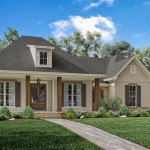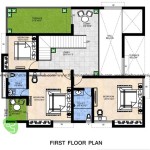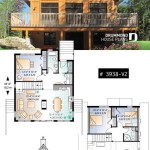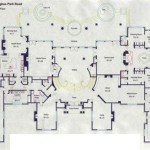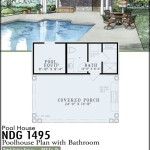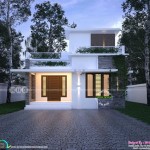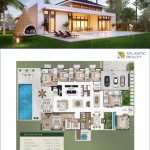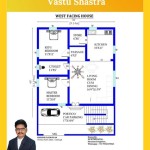Essential Aspects of a House Design Layout Plan: Creating a Functional and Aesthetic Home
Designing the layout of a house is a crucial step in creating a functional and welcoming living space. Whether you're building a new home or renovating an existing one, a well-thought-out layout plan will determine the overall flow, comfort, and functionality of your home.
Here are some essential aspects to consider when creating a house design layout plan:
1. Functionality and Flow
The layout should prioritize functionality and flow. Rooms should be connected in a logical and efficient manner, allowing for easy movement between spaces. Consider the daily routines of your family and design the layout to accommodate these needs. For example, the kitchen should be easily accessible from the dining room and living room.
2. Natural Lighting
Natural lighting plays a vital role in creating a comfortable and inviting home. Position your windows strategically to maximize natural light in key areas such as the living room, kitchen, and bedrooms. Large windows or sliding doors can connect your home to the outdoors and bring in ample sunlight.
3. Room Size and Proportion
The size and proportion of each room are crucial for comfort and functionality. Each space should have enough room for furniture and other necessary items. Avoid making rooms too small or too large. The proportions of the rooms should be balanced and visually appealing.
4. Open and Closed Spaces
A well-designed layout plan incorporates a balance between open and closed spaces. Open spaces, such as great rooms or family rooms, create a sense of spaciousness and allow for multiple activities. Closed spaces, such as bedrooms and bathrooms, provide privacy and seclusion. Consider the desired balance between these types of spaces.
5. Storage and Organization
Adequate storage solutions are essential for keeping your home organized. Plan for ample storage space in all rooms, including closets, pantries, and built-in shelves. Smart storage solutions can improve functionality and reduce clutter.
6. Aesthetics and Style
Beyond functionality, the layout plan should also reflect your personal style and aesthetic preferences. The arrangement of the rooms, the use of materials, and the overall design should create a visually appealing and harmonious environment that you love coming home to.
7. Outdoor Spaces
If possible, incorporate outdoor spaces into the layout plan. Patios, decks, or gardens can extend your living space and provide a connection to nature. Plan these outdoor areas to seamlessly connect with the interior spaces and enhance the overall functionality and enjoyment of your home.
Creating an effective house design layout plan requires careful consideration of these essential aspects. By prioritizing functionality, natural lighting, room size, open and closed spaces, storage, aesthetics, and outdoor spaces, you can design a home that meets your specific needs and creates a comfortable and inviting living environment.

House Plans How To Design Your Home Plan

Floor Plans Types Symbols Examples

Small House Design 2024005 Pinoy Eplans Modern Plans Floor

Peach Tree House Plan Ranch Floor Designs

Small House Plans Popular Designs Layouts

Small House Design 2024001 Pinoy Eplans Floor Plans

House Plan Terra Valley Sater Design Collection

Floor Plans Types Symbols Examples

House Floor Plans Your Best Guide To Home Layout Ideas Decorilla Interior Design

House Plan St Thomas Sater Design Collection

